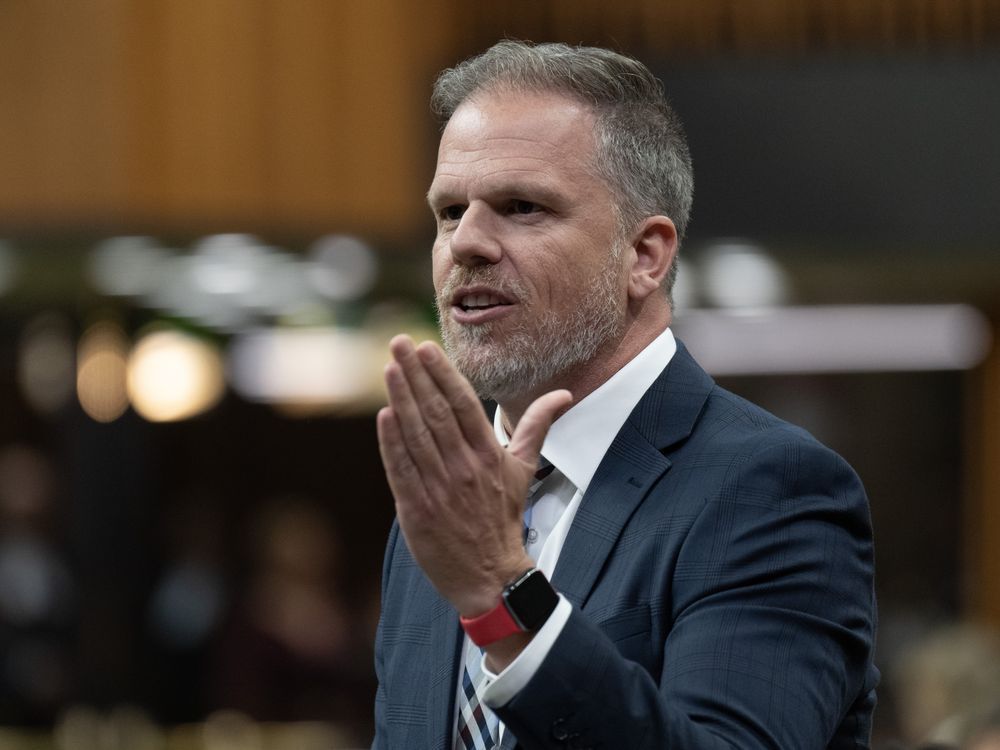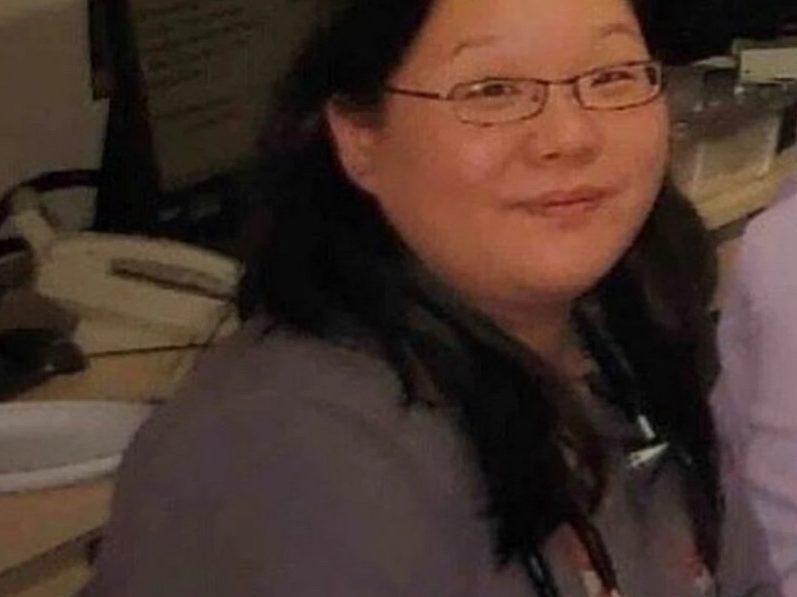Queensway Carleton Hospital is seeing a spike in patients who are sicker with more complex needs. This is how it's adapting.
Get the latest from Elizabeth Payne straight to your inbox
Published Sep 09, 2024 • Last updated 0 minutes ago • 4 minute read

For more than a month last winter Sally Hodgson battled a respiratory illness she couldn’t shake. In January that illness became a life-threatening crisis.
After feeling under the weather for weeks despite treatment with inhalers and antibiotics, Hodgson woke up one morning unable to catch her breath or even speak. Her husband was already at work. She called her sister, who could barely make out what she was trying to say, and then she dialed 911.
Advertisement 2
THIS CONTENT IS RESERVED FOR SUBSCRIBERS ONLY
Subscribe now to read the latest news in your city and across Canada.
- Exclusive articles from Elizabeth Payne, David Pugliese, Andrew Duffy, Bruce Deachman and others. Plus, food reviews and event listings in the weekly newsletter, Ottawa, Out of Office.
- Unlimited online access to Ottawa Citizen and 15 news sites with one account.
- Ottawa Citizen ePaper, an electronic replica of the print edition to view on any device, share and comment on.
- Daily puzzles, including the New York Times Crossword.
- Support local journalism.
SUBSCRIBE TO UNLOCK MORE ARTICLES
Subscribe now to read the latest news in your city and across Canada.
- Exclusive articles from Elizabeth Payne, David Pugliese, Andrew Duffy, Bruce Deachman and others. Plus, food reviews and event listings in the weekly newsletter, Ottawa, Out of Office.
- Unlimited online access to Ottawa Citizen and 15 news sites with one account.
- Ottawa Citizen ePaper, an electronic replica of the print edition to view on any device, share and comment on.
- Daily puzzles, including the New York Times Crossword.
- Support local journalism.
REGISTER / SIGN IN TO UNLOCK MORE ARTICLES
Create an account or sign in to continue with your reading experience.
- Access articles from across Canada with one account.
- Share your thoughts and join the conversation in the comments.
- Enjoy additional articles per month.
- Get email updates from your favourite authors.
Sign In or Create an Account
or
Article content
Hodgson remembers the beginning of the ambulance ride to Queensway Carleton Hospital but the subsequent hours, days and weeks are a blur.
The 59-year-old Ottawa woman learned later that she had been suffering from RSV (respiratory syncytial virus). The protracted illness led to acute respiratory distress syndrome, a type of respiratory failure marked by widespread inflammation in the lungs. She became so sick that doctors at Queensway Carleton sent her to the University of Ottawa Heart Institute where she was kept alive on an ECMO (extracorporeal membrane oxygenation) machine — a heart and lung machine similar to the ones used in open heart surgery.
Hodgson has no memory of that critical period until she was back in intensive care at Queensway Carleton for recovery. When she returned home last spring, she could only walk short distances — with the help of a walker. She was too weak to hold a mug.
She is beginning to feel more like herself again, slowly, with rehabilitation and rest.
Her case was both critical and complex, the kind health professionals at Queensway Carleton Hospital (QCH) have been seeing more of lately.
Advertisement 3
Article content
Once a small, community hospital on the western side of Ottawa, the QCH has undergone big changes in recent years. Those changes have mirrored the growth and complexity of the population and reflect the times. Many of the hospital’s patients, like Hodgson, are much sicker than patients were in the past and they increasingly have more complex needs, sometimes related to delayed care during the pandemic and family doctor shortages.
That has been a challenge for the hospital’s critical care team.
“Twenty years ago we were a very small hospital with just a little over 200 beds,” said Dr. Akshai Iyengar, chief and medical director of critical care at QCH. Today, the hospital has close to 400 beds, including an intensive care unit that has grown from 12 to 17 beds.
“We are seeing sicker patients with multi-system diseases and complexity requiring quite a lot of intensive care,” said Iyengar. “We have had to grow and adapt to that.”

The numbers tell the story. In the 2023/24 fiscal year (ending last March) the intensive care unit at Queensway Carleton had 4,749 patient days, a jump of about 37 per cent compared to five years earlier. Health professionals did 1,113 consults, which was up 25 per cent from a year earlier. The hospital’s rapid response team, an ICU team that responds to deteriorating patients throughout the hospital, also saw a significant increase in calls. Ventilator use also increased and the number of patients receiving renal replacement therapy for end-stage kidney disease shot up by 82 per cent.
Advertisement 4
Article content
“Whether their care has been delayed due to the pandemic or lack of resources, patients are now coming to us with more advanced co-morbidities and malignancies than ever before,” said Iyengar.
The hospital has also seen an increase in ALC (alternative level of care) patients who require more complex interventions, including feeding tubes and resuscitation.
The hospital says it is using more advanced interventions than ever and collaborating with regional partners to deliver cutting-edge treatment to patients, including the regional collaboration for the use of ECMO machines.
“With each passing year, the hospital’s workload intensifies, reflecting not just an increase in patient numbers, but a shift in patient acuity and needs,” the hospital said in its recent annual report.
The rapid changes are part of the evolution of health care during and after the early years of the pandemic, said Iyengar. But demographics also play a part. Not only has the population near Queensway Carleton grown rapidly in recent years, but its immediate neighbourhood has one of the highest rates of elderly residents in the country.
Advertisement 5
Article content
Yvonne Wilson, vice-president of patient care and chief nursing executive at QCH, said intensive care units at community hospitals had to “step up and work through more complex patients” during the early years of the pandemic when hospitals in Ottawa were taking some critically ill patients from Western Canada among other things. Those challenges have continued.
“We are busier and fuller. We embrace that challenge and change that has come our way,” she said.
Hodgson, meanwhile, remains grateful for the care she received when she was at her sickest. “I hope everybody can get that kind of great care.”
Our website is your destination for up-to-the-minute news, so make sure to bookmark our homepage and sign up for our newsletters so we can keep you informed.
Recommended from Editorial
-

Seniors are leaving this Ottawa hospital in better shape than when they arrived. Here's why that's unusual
-

Pandemic funding cuts mean fewer emergency doctors at Queensway Carleton Hospital
Article content
.png)
 1 week ago
13
1 week ago
13


































 Bengali (BD) ·
Bengali (BD) ·  English (US) ·
English (US) ·